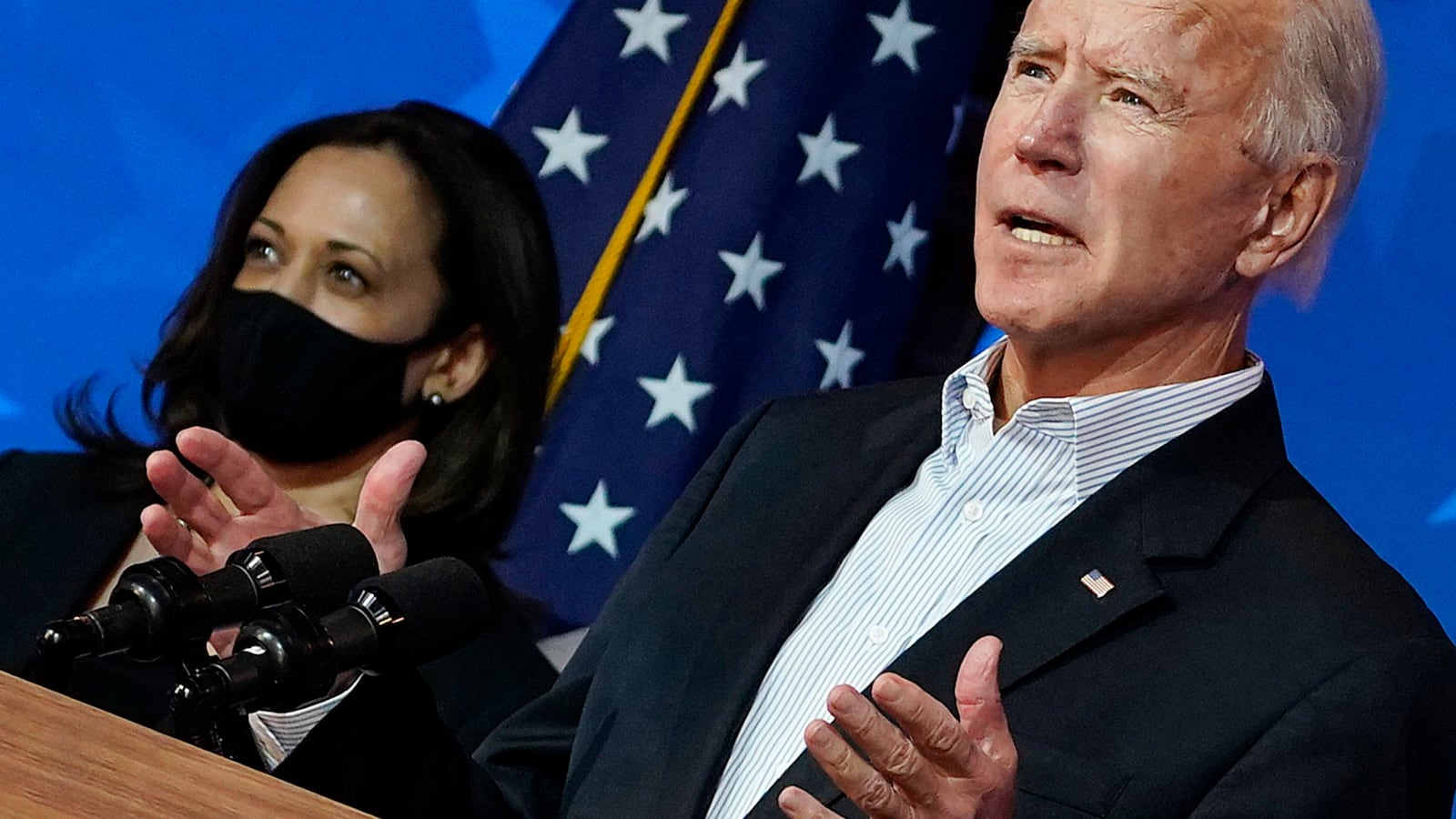It sounds so easy: Kamala Harris just has to ignore the parliamentarian’s ruling that the minimum wage increase doesn’t belong in the COVID relief bill, and just like that, the minimum wage increase happens. So why don’t these feckless Senate Democrats—and the Senate takes up the bill this week—just do it?
Because it isn’t that easy. Legislating isn’t easy. It’s really hard and slow and tedious. But what about Franklin Roosevelt and Lyndon Johnson, you ask? They were bold, not like these timid corporate ninnies today! Bullshit. Roosevelt and Johnson had Democratic majorities that don’t exist now and will never exist again. And even they made loads of compromises.
I want a $15 minimum wage—at least. I want a huge green jobs bill. I want much higher taxes on the rich. I also want the Senate to do away with or at least radically change the filibuster, as I’ve been writing for years. And so on and so on. And progressives in Congress are right to push hard for these things. But it’s important not to be under any illusion that any of these things are easy. These things are hard. The Senate is a basically reactionary institution. Progress will be piecemeal. The odds of ultimate victory will actually be stronger if everyone understands this.
As to the current situation, the White House has said that it is not going to ignore the parliamentarian’s ruling that the minimum wage increase doesn’t belong in the COVID bill, so this is all academic in a way. But let’s say for the sake of argument that Harris did overrule the parliamentarian. What would happen?
First, Republicans would demand a vote appealing Harris’ ruling. It takes 60 votes to sustain such an appeal, according to Sarah Binder of the Brookings Institution, probably the leading expert on Senate rules, whom I emailed with Sunday.
This should mean that Harris’ position would stand, since it’s hard to see 10 Democrats who would vote with the 50 Republicans to overrule Harris. But are we 100 percent sure of that? Joe Manchin and Krysten Sinema would join the Republicans. So, probably, would Mark Kelly, following Sinema’s lead. Then, there are a number of Democratic traditionalists who, depending on how much of a hubbub all this created, might fold. Dianne Feinstein, notably. You just never know.
But the bigger threat would be that Manchin and Sinema would kill the whole relief package. This is entirely plausible. Some say call their bluff. It’s alluring talk that makes for a great, principled-sounding tweet. But if you’re Joe Biden, are you really going to take that chance?
He has to pass this relief bill. If he loses this vote, his presidency is in deep trouble not even two months into it. It would be nice if Senate Democrats were 100 percent united on the $15 minimum wage. But they aren’t. And Manchin doesn’t sound like he’s going to get to $15.
The Charleston Gazette-Mail, West Virginia’s flagship newspaper, ran a long interview with Manchin over the weekend. If you’re interested in his thinking on a range of subjects, it’s worth a read. On the minimum wage, he thinks $15 is too high for a rural state. He says $11. Maybe there’s some wiggle room in there, but not up to $15.
You can be furious at him if you want. But he represents a state that Donald Trump won by 39 points. Also just recently, Republican voter enrollment surpassed Democratic enrollment in the state. He’s just going to buck the party here and there. It’s a fact.
As I wrote last week, the minimum wage is far from dead. There will be “must-pass” appropriations bills Democrats can attach it to. It will probably be more like $13 than $15. That’s too little, as far as I’m concerned. But it would also be a huge deal.
And that’s the nature of progressive legislation. It is always, every single time, simultaneously not enough and a tremendous victory. The first version of Social Security was inadequate—it excluded agricultural and domestic workers. But it was historic. Medicare-Medicaid, and Obamacare—same thing. Not enough, but also historic.
So, to return to where I started. This stuff isn’t easy. And believing that it is, or promulgating the idea that it is, can help tear the broad coalition apart. Josh Marshall put it well over the weekend: “If this whole minimum wage thing is easily solvable and Joe Biden or Chuck Schumer refuse to solve it, that must mean that they don’t care that much about it. Or maybe the whole show of an effort to try to hike the minimum is a ruse. Maybe the fix is in somehow. That’s obviously a very damaging message when you’re trying to keep a political coalition together.”
People should continue to fight hard for a $15 minimum wage. Fighting for $15 is probably still the best way to get $13. So keep at it—while understanding that these gears turn very slowly. They always have. FDR came into office promoting a comprehensive cradle-to-grave social insurance bill. It sounded great. And yes, he obviously passed many bills in those first 100 days. But he made a lot of compromises and concessions to legislative reality, too. The eminent historian David M. Kennedy wrote in American Heritage magazine: “Compromise after compromise whittled FDR’s grand vision for a comprehensive system of social provision down to what [Labor Secretary Frances] Perkins later glumly appraised as but a few ‘practical, flat-footed first steps.’”
They were first steps, but they also changed the direction of the country. Historians of the future may record that the Biden administration did something similar. It can happen if the broad coalition holds together. But if the coalition splinters, it definitely will not.





